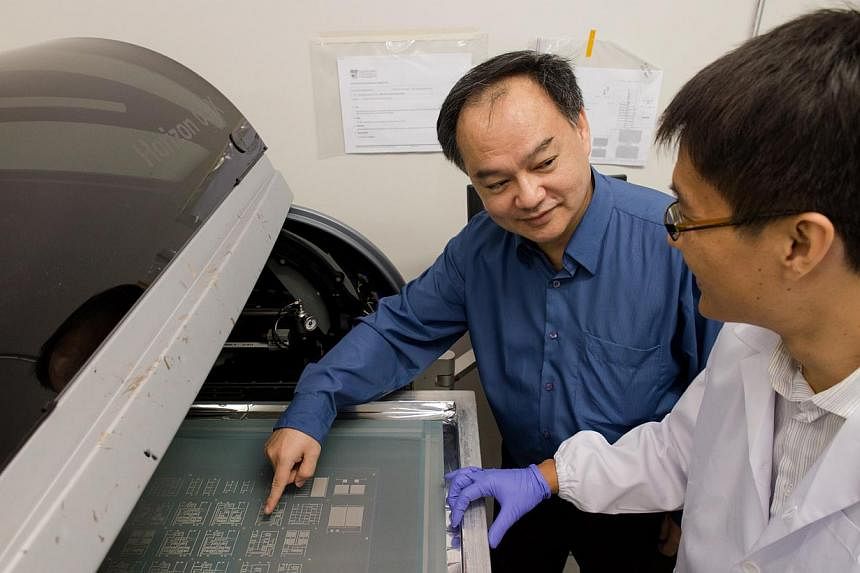SINGAPORE - Soon, your milk carton could be smart enough to let you know when the milk has expired.
Or an intelligent bandage on your sick infant could allow you to monitor his or her temperature while you are at work.
The smart circuits that enable such devices could soon be rolled out cheaply in bulk using a common T-shirt printer, following a new invention by Nanyang Technological University (NTU) engineers.
The new technology involves printing complex electronic circuits onto flexible materials such as plastic, aluminium foil, and paper.
Associate Professor Joseph Chang, who heads the NTU research team, said their product would not compete against "high-end processors like those found in smartphones and electronic devices," which are usually made of silicon and gold.
"Instead we complement them with cheaply printed circuits that cost mere cents instead of a few dollars, making disposable electronics a reality," he said.
The 53-year-old estimates that customised circuit designs could be printed using this method for as little as 10 cents a sheet.
According to him, producing the same design using existing industry methods could cost up to a thousand times more.
The technology is eco-friendly, as it does not use the toxic chemicals required for other electronics printing. It can also be printed on demand within minutes and on a large scale.
"You could print intelligent wallpaper," said Prof Chang, who envisions smart rooms which can change colour if you are sleepy, or check the Pollutant Standards Index (PSI) for you.
Prof Chang's team of five have been working for the past four years on this project, which has funding of $1.5 million.
The team already has two provisional patents, one of which is for printed circuits on medical packaging that could allow patients to keep track of whether they have taken their medication.
NTU is establishing a start-up company, through which Prof Chang hopes to commercialise the invention within a year.





